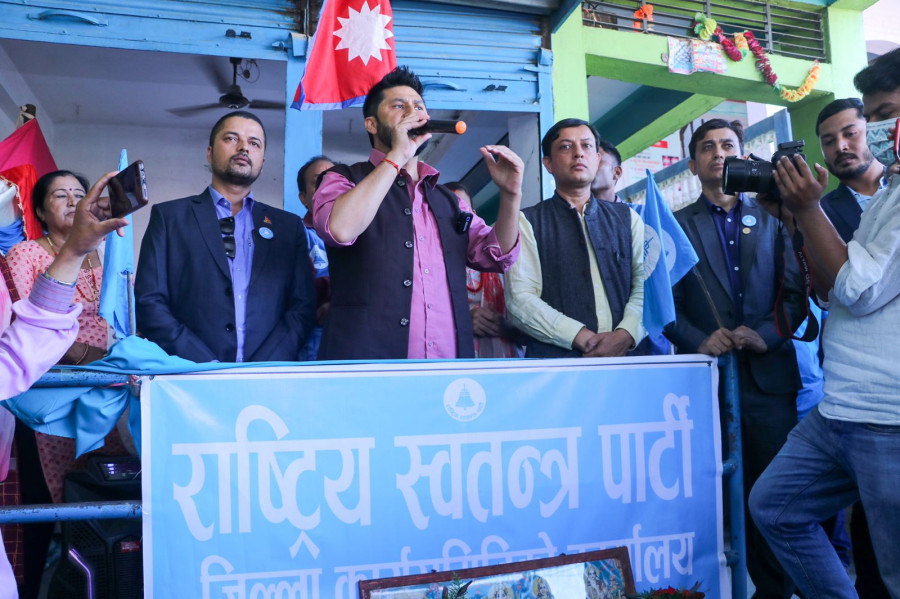Editorial
Times they’re changing
The rise of the Rastriya Swatantra Party reflects the passion for change among Nepali voters.
The beauty of democracy is that no matter how problematic it is, there is always a possibility for it to change for the better. As the results of the November 20 parliamentary and provincial elections trickle in, there is widespread euphoria among people, especially the youth, about how the old guard is disappearing to make way for the young and the restless—at least in some major parliamentary seats. The stellar rise of Sobita Gautam in Kathmandu-2, Toshima Karki in Lalitpur-3, Sishir Khanal in Kathmandu-6, Biraj Bhakta Shrestha in Kathmandu-8, and Ganesh Parajuli in Kathmandu-7, is a case in point. Not only have they risen in politics on their own, they have also defeated political heavyweights who considered themselves infallible, blinded as they were by the harsh lights of power.
Gautam’s defeat of former Speaker of Parliament Onsari Gharti Magar and Karki’s defeat of sitting minister Pampha Bhusal has especially shown that even the days of the women representing the old guard are gone as new-age women with impressive professional portfolios enter the political scene. Interestingly, these young leaders represent a novice political outfit called the Rastriya Swatantra Party (RSP), which is yet to take a clear ideological stand on some fundamental aspects of Nepal’s democracy and constitution, including on federalism and secularism. Having secured victories in over half-a-dozen federal parliamentary constituencies and garnering the third-highest number of proportional votes, the RSP has challenged the flag-bearers of old-style politics even as it has turned the course of electoral politics in Nepal.
No less interesting is the rise of Rabi Lamichhane, among Nepal’s most famous television personalities, who left his flourishing media career to join politics. As of this writing, Lamichhane is leading with a comfortable margin in Chitwan-2, and is most likely to win (although the damocle’s sword concerning a complaint on his citizenship status hangs over his head). Having established himself as the messiah of the poor and the helpless when working as a television host, Lamichhane has used his popularity to the maximum while garnering votes for himself and his party colleagues. The votes the RSP candidates have garnered are not just a result of their leadership skills or electoral manifestos alone; they are more outcomes of people’s frustration with the way the established political parties, including the Nepali Congress, the CPN-UML and the Maoist Centre, have functioned in the past few years, especially in the last parliament.
Whether the RSP is going to function differently is for us all to see. One cannot rule out a hung parliament, in which case the young party will get ample space to be the kingmaker while also getting enmeshed in the old-style parliamentary politics that the people are sick and tired of already. But, for now, what can be said is that they gave voice to the people who wanted change in Nepal’s electoral politics. The new parliament is also likely to be diverse in terms of age, qualification and ideological standpoints. Even if the young parliamentarians really make the noise they have promised in the new parliament, Nepal’s democracy will get one more chance to reform itself.




 8.22°C Kathmandu
8.22°C Kathmandu














